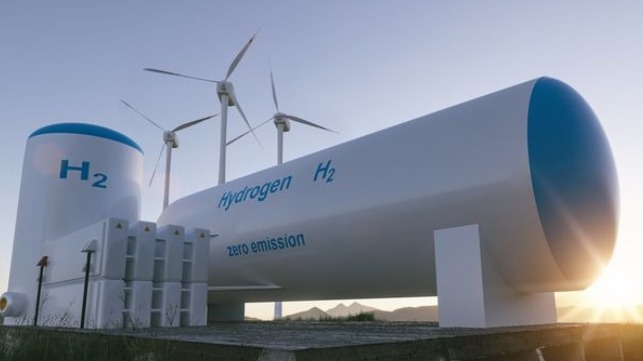Australian Exports of Hydrogen Could Reach Rotterdam Within Four Years

With all the attention focusing on developing hydrogen as a sustainable fuel source one of the questions remains the supply of hydrogen and the infrastructure to make it available to industry. A new study shows that significant progress is being made and that the first exports of hydrogen from South Australia to Rotterdam are feasible this decade, possibly in as few as three to four years.
Earlier this year, the South Australian Government and the Port of Rotterdam Authority signed a Memorandum of Understanding to assess the feasibility of exporting hydrogen made in Australia to the Port of Rotterdam. The pre-feasibility study shows strong opportunities concluding that South Australia’s renewable energy resources will give the state a competitive edge in the race to supply clean hydrogen to Europe. With the available natural resources and developing projects, the study projects that South Australian hydrogen could supply up to 10 percent of Rotterdam’s hydrogen requirements in 2050. Rotterdam’s hydrogen demand is forecast to reach 18 million tons annually by 2050.
“With four hydrogen projects already under development and another seven more shortlisted for land at Port Bonython, South Australia is on track to become a significant hydrogen producer and exporter, starting as early as 2025-2026,” said Australia’s Minister for Energy and Mining Dan van Holst Pellekaan. “A huge new global market is developing as much of the world shifts towards renewable energy for power and to reduce carbon emissions by 2050, and South Australia is leading the way using its abundance of wind and solar to produce and export low-cost energy, including clean, green hydrogen exports.”
Since signing the agreement in March 2021, Australian officials have been working with the Port of Rotterdam on a pre-feasibility study that confirms South Australia could supply a significant share of hydrogen that Rotterdam expects to import by 2050. Key officials from the South Australian and the Netherlands governments and the Port of Rotterdam have been using the study to guide the exploration of building the infrastructure to support hydrogen.
Allard Castelein, CEO for the Port of Rotterdam said local conditions in South Australia, such as the amount of sunshine, wind, availability of space, and investment climate, could make this area one of the major hydrogen exporters worldwide.

that matters most
Get the latest maritime news delivered to your inbox daily.
“Next steps for us to work on will be to bring the companies working on hydrogen export facilities at Port Bonython together with potential off-takers in the port of Rotterdam and its hinterland,” said Castelein. “The study also concluded that careful consideration needs to be given to a master plan for the development of a port and industrial complex including export infrastructure at Port Bonython. An international system of certification of hydrogen has to be in place to start these new trade lanes.”
The Port of Rotterdam and Australia are continuing their discussions on the efforts to build the global trade in hydrogen. The pre-feasibility study is informing discussions regarding South Australia’s potential to export green and blue hydrogen to Rotterdam. The concept looks to use the Port of Rotterdam’s global experience in port governance as South Australia progresses with the development of Port Bonython for hydrogen export.
